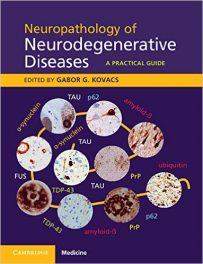 Editors: Richard A. Polin and Alan R. Spitzer
Editors: Richard A. Polin and Alan R. Spitzer
Publisher: Elsevier Saunders – 558 pages
Book Review by: Nano Khilnani
This compact and small book can be used as an excellent practical guide – to questions that will be asked in review exams and the answers to them.
In this book, you will find 100 top secrets in the care of the newborn, tips for success in the taking of exams, and some key points and useful websites in your field.
Contributed by 35 experts, the material in this handy book can add to your knowledge, and fill gaps where needed in your practice of treating and caring for infants and children.
Four basic things you will be able to do with this book are:
• Apply all the latest advances in clinical fetal medicine and neonatology techniques, technology, and pharmacy.
• Provide optimal care fore your fetal and neonatal patients with comprehensive coverage of disciplines, and contributions from numerous experts.
• Zero in on key fetal and neonatal information with a question-and-answer format, bulleted tests, mnemonics, and practical tips from the authors.
• Review essential material effectively.
The authors write that in the years prior to the early 1900s – before modern medical schools were established – much of the learning by young doctors was acquired by working closely with experienced ones. They state that the traditional means of learning medicine was to apprentice with a skilled medical practitioner by which the apprentice learned the “secrets” of a successful medical practice.
All that changed over the last 100 years or so, and today, medical knowledge is e acquired through textbooks and instruction from professors; skills through practice; experience through treating patients; and wisdom and “secrets” through a lot of all of these means.
While this book provides a lot of knowledge about fetal and neonatal medicine in its 19 chapters spread over more than 550 pages, it is uniquely different from other books by a single outstanding feature: it provides you the student and reader the top 100 “secrets” in its first six pages.
The pages of the “secrets” are a very interesting, revealing and often, an imperative read, indeed. Secret No.1 for example, states: “About 10 percent of neonates will need some degree of resuscitative support at the time of birth.” Secret No.4 is alarming though, to those who are not versed in fetal and neonatal medicine: “Without pulse oximeter screening, congenital heart disease may be missed during the immediate newborn period in about 50 percent of neonates with the condition.
What about this one – No.6 – of which a lot of parents of newborns are confused or not sure of, with regards to the pros and cons of breast feeding: “For the first six months of life, breast milk alone provides adequate nutrition for virtually any term neonate.”
How much average weight should a newborn gain each day in the first few months of life? Secret No. 8 states: “In the first three to four months of life, a newborn should gain about one ounce per day on average.” And by the baby’s fifth month, a healthy term infant (having been born after the full-term or nine months of pregnancy) should weigh double the birth weight.
What are the areas of coverage in this book? Its chapters cover everything from the time of birth of the full-term infant, to his or her growth and development, to obstetric issues, labor and delivery, to family-centered and developmental care in the neonatal intensive care unit, including the environment in the NICU and infection control.
Other chapters focus on specific areas of care of the infant such as cardiology, dermatology, endocrinology, fluids, gastroenterology (including nutrition), genetics, hematology, immunity, neurology, ophthalmology, orthodontics, pain management, pulmonology, and surgery.
This is a quite a comprehensive book on the care of the pre-born and infants, with all the information available in a portable, easy-to-use book.
Richard A. Polin, MD is a professor of pediatrics in the college of physicians and surgeons at Columbia University, and director of the division of neonatology at the Morgan Stanley Children’s Hospital of New York – Presbyterian, in New York, New York.
Alan R. Spitzer, MD is senior vice president for research, education and quality at the Pediatrix Medical Group in Sunrise, Florida.







